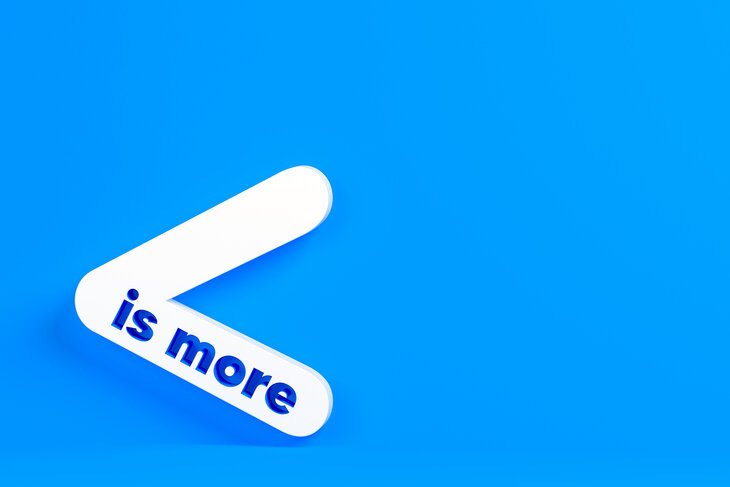Do you make any New Year's resolutions? If you did, chances are you added something. Perhaps you decided to exercise more (the most common resolution) or read more books.
But did you resolve to stop doing something? Did you consider subtracting from your life instead of adding to it?
If not, you might reconsider. Our consumer culture encourages us to think adding more, buying more, and doing more, will make us happier.
But the opposite tends to be true. Less allows you to be more.
In shifting our thinking on this matter, we follow in the footsteps of the biblical Abraham, who radically simplified faith when he subtracted the belief in multiple deities and saw God as one, as unitary, without division.
Here are a few problems with our current paradigm:
Doing more distracts us from doing the important: Doing more is not always wrong or ineffective. Doing more exercise may indeed help someone lose weight.
But it can also overwhelm and distract us from the simple exercises needed to sustain real health. In other words, too much can backfire and result in too little. We often give up on a project or goal because we try too much too soon.
Simple small steps move us forward most effectively and efficiently.
Did Moses bring the Israelites to the promised land immediately? No. They took a long journey where they made small steps, consistently.
More stuff means more things to lose: Whatever we acquire and know is what we ultimately lose, because death is the only certainty of life.
That does not mean we do not learn and grow and acquire things. They enrich our sense of meaning and place in this world. But this truth does require us to live mindfully.
One of the reasons Jews traditionally say 100 blessings a day is because blessing forces us to acknowledge what we are about to do or consume. They make us mindful.
Furthermore, from a theological point of view, everything belongs to God. Whatever we have we are borrowing, and the more we borrow, the more we have to carry and return.
An eighteenth-century rabbi told a story about a man welcoming guests into his home. He had no furniture, so there was no place for his guests to sit!
Finally, someone asked him: “Rabbi, where is your stuff?” The rabbi responded: “And where is yours?”
“But, rabbi, we are just passing through.” “Ah," he said. “So am I. So am I.”
More takes us away from figuring out who we are: During the Jewish holiday of Yom Kippur, we traditionally stay in the synagogue all day. We pray, study, and fast. Any other activity distracts us from this sacred work.
Now Yom Kippur is only one day of the year. But it reminds us of the need to create space where we can grow as human beings. That is harder than it sounds.
Sometimes we do things just to distract ourselves from the hard work of knowing and growing ourselves.
Remember the verse from the Psalms, "Be still and know that I am God." (46:10)
Being still is not just a call to pause, close our eyes, and stop moving. It is a call to a way of life, a constant practice so that we can sense the divine presence around us.
The more we desire and acquire, the harder it is to be still and know God.





Rabbi, Your words inspire. D